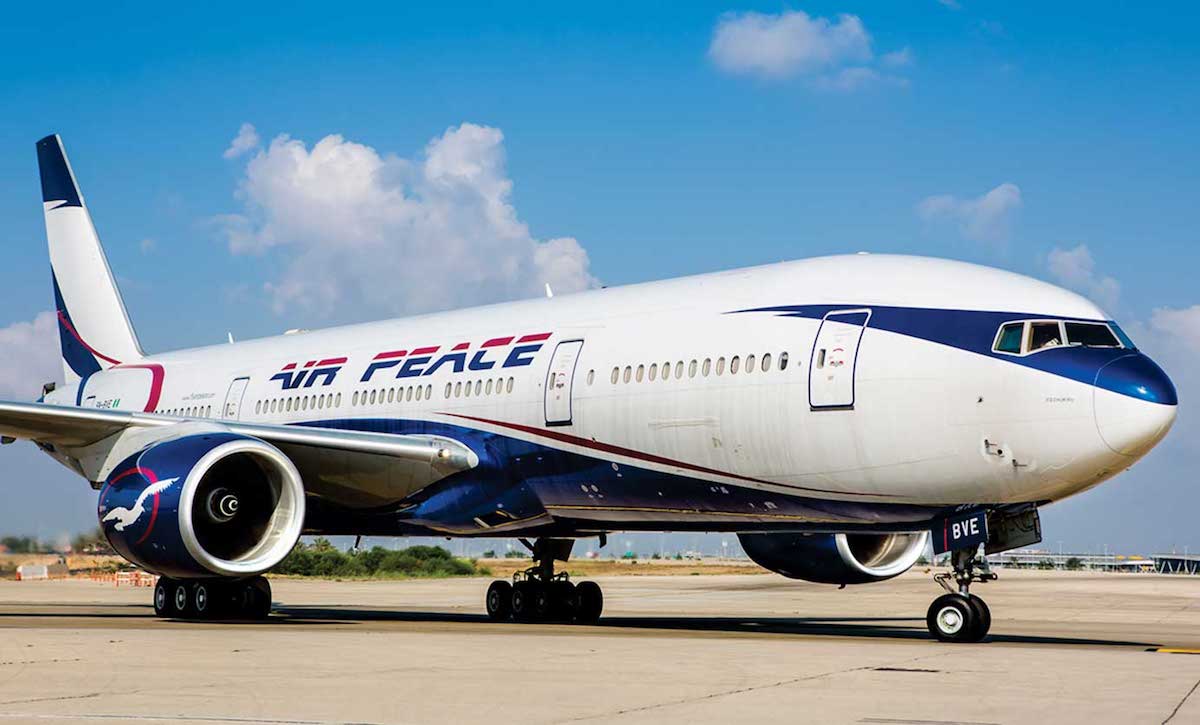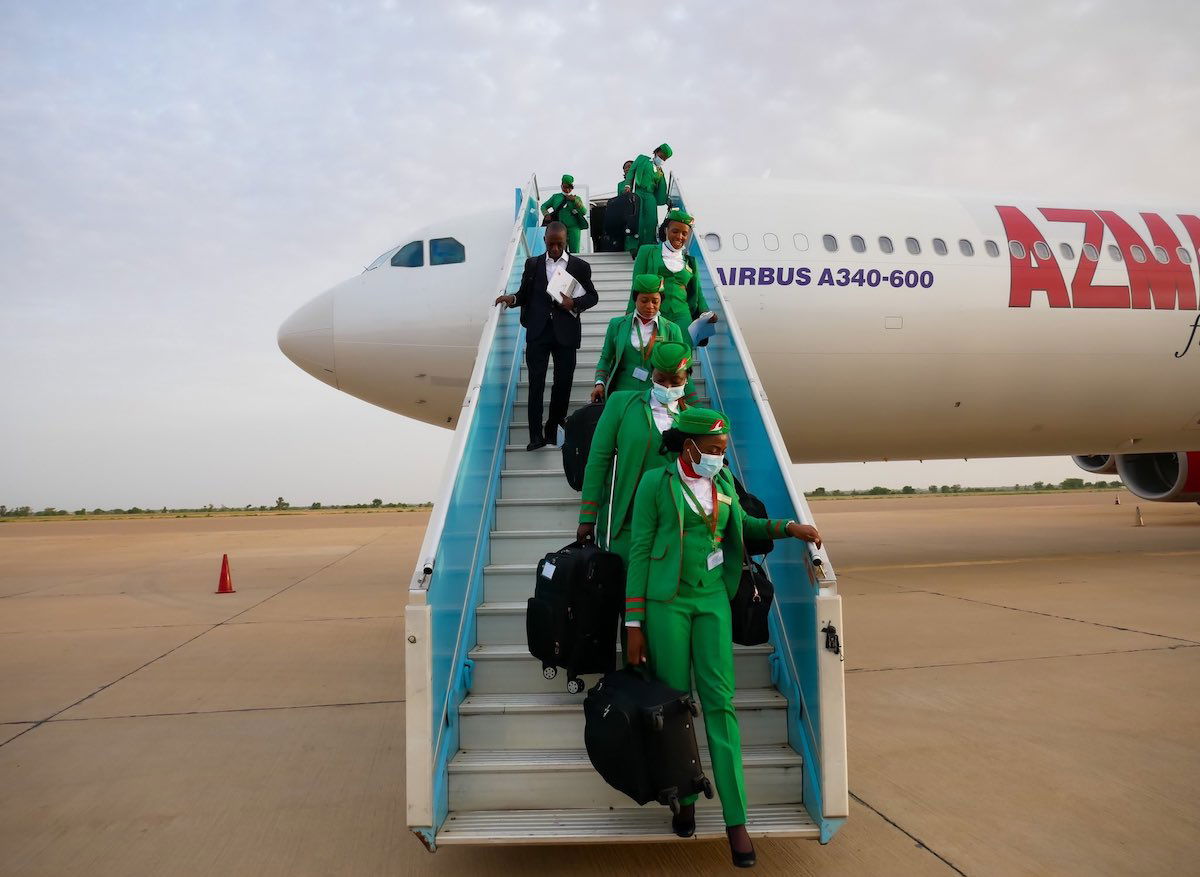There are huge inconsistencies around the world when it comes to consumer protections for delayed flights. In the United States, airlines can delay your flight by days or weeks (in theory), and you aren’t legally due any compensation. Meanwhile in most of Europe, you could get cash compensation for a delay of several hours.
Well, Nigeria has just taken consumer protections for airline tickets to the extreme. Has the country gone too far?
In this post:
Nigeria’s new protections for airline passengers
Nigeria’s Minister of Aviation, Hadi Sirika, has this week revealed new protections for airline passengers at the weekly State House Briefing in Abuja:
- For domestic flights delayed at least one hour, passengers should be provided refreshments, and one telephone call, text, or email
- For domestic flights delayed at least two hours, the airline should reimburse passengers their ticket price in full
- For domestic and international flights delayed between 10PM and 4AM, the airline should provide hotel accommodation, refreshments, meals, transportation to and from the airport, and two free phone calls, texts, or emails
These new protections are intended to address the serious flight punctuality issues that Nigerian airlines have. In the first quarter of 2021 in Nigeria:
- Over 50% of flights were delayed — this impacted 7,554 of 14,662 flights
- Over 30% of international flights were delayed — this impacted 562 of 1,871 flights were delayed
- Nine international and 149 domestic flights were canceled

Are Nigeria’s new consumer protections too generous?
In general I think there’s value in government mandated protections for airline passengers. I don’t think the United States goes far enough, because airline contracts of carriage are entirely one-sided — airlines don’t promise when they’ll get you to your destination, and you’re not entitled to any monetary compensation, regardless of how long the delay is.
However, am I the only one who sees the very obvious problem with Nigeria’s plan? If an airline delays a flight by over two hours, what incentive does the airline have to actually operate the flight? If everyone would be refunded and get the flight for free, it seems like the airline would be best off just canceling the flight, no?
It just seems to me like this goes a step too far, and that airlines will find ways to get out of this — delays will probably always be blamed on weather or something outside the carrier’s control, and we could very well see airlines cancel flights, given the lack of incentives to actually operate them.
While less significant, I’m also curious about the logistics of everyone getting a phone call, text, or email, in the case of a delay. If you have 150 people on a plane, are airlines expected to just have dozens of cell phones to hand out, or how is that supposed to work?

Bottom line
Nigeria is enacting what on the surface appears to be the most consumer-friendly airline delay protections we’ve ever seen. For domestic flights delayed by more than two hours, customers will be entitled to a full refund, which is more generous than anything we’ve seen anywhere else in the world.
While I of course love the concept of more protections for airline passengers, I feel like this takes it a step too far, to the point that airlines will no longer have an incentive to actually operate delayed flights.
I’m curious to see the exact verbiage around this policy, and also how long it lasts.
What do you make of Nigeria’s new aviation consumer protections?


There'll be some serious schedule padding going on there now.
If I am reading your article correctly, the refund only applies to domestic flights, not international, correct? And in a country where the longest domestic flight is less than two hours, it seems reasonable that if your journey time is doubled, you get your money back. (As far as whether the airlines would just start cancelling flights, they could just put in the regulation that, if cancelled within 24 hours, they are required to get...
If I am reading your article correctly, the refund only applies to domestic flights, not international, correct? And in a country where the longest domestic flight is less than two hours, it seems reasonable that if your journey time is doubled, you get your money back. (As far as whether the airlines would just start cancelling flights, they could just put in the regulation that, if cancelled within 24 hours, they are required to get the pax to the final destination as well as refund the money. Seems fairly straightforward.)
The Nigerian legislation doesn’t define a specific amount of compensation. Equally if you have to pay EUR600 comp to someone who has paid EUR500 ( exclude taxes as they go to the government) for a return ticket , they are travelling for free.
Then if they have a disruption on their return - bingo. Some companies have written in contracts their staff are prohibited from comp claims if travelling on company business, however their...
The Nigerian legislation doesn’t define a specific amount of compensation. Equally if you have to pay EUR600 comp to someone who has paid EUR500 ( exclude taxes as they go to the government) for a return ticket , they are travelling for free.
Then if they have a disruption on their return - bingo. Some companies have written in contracts their staff are prohibited from comp claims if travelling on company business, however their staff do as privacy regulations means the company would never find out.
Meanwhile in the US if you get bumped due to an aircraft charge there is no obligation to comp you , unless it’s an EU U.K. carrier to the EU /U.K. In the US if your flight delayed due to weather the airline doesn’t offer assistance whereas U.K. /EU it’s mandatory
You mention possible exemptions but are there any actual exemptions from compensation such as there are in the EU/UK 261 regulation for issues like weather or mechanical issues?
The main aim behind these sorts of regulations is not to punish airlines but to get to sort their flight operations out and not to cancel flights at the drop of the hat because of low loads.
Israel and Canada have similar regulations.
What surprises me...
You mention possible exemptions but are there any actual exemptions from compensation such as there are in the EU/UK 261 regulation for issues like weather or mechanical issues?
The main aim behind these sorts of regulations is not to punish airlines but to get to sort their flight operations out and not to cancel flights at the drop of the hat because of low loads.
Israel and Canada have similar regulations.
What surprises me in supposedly 'consumer is king USA' that there dosen't appear to be a similar set of regulations covering these same issues. It seems like airlines can just cancel or delay flights and there is little or nothing passengers can do about it unless the airline want's to offer a refund or compensation.
Also the "one telephone, SMS or email" is not for the passenger to send, but rather the airline should notify the passenger of the delay via phone, text or email if the delay is an hour or longer.
Nothing particularly new here. Nigeria has had a wide range of often contradictory consumer protection in place for many years now. The NCAA and NCPA tribunals often come up with divergent rulings on the exact same case so airlines are comfortable enough just ignoring them and picking and choosing what to comply with.
Also, the requirement for refund for delayed flights is for passengers who choose not to travel as a result of the...
Nothing particularly new here. Nigeria has had a wide range of often contradictory consumer protection in place for many years now. The NCAA and NCPA tribunals often come up with divergent rulings on the exact same case so airlines are comfortable enough just ignoring them and picking and choosing what to comply with.
Also, the requirement for refund for delayed flights is for passengers who choose not to travel as a result of the delay, not for those who travel anyway (they just are due the duty of care).
This is Nigeria... In practical terms The Law means absolutely NOTHING. More a gimmick to let employees and lowly administration officials extract whatever dashes from the airlines and the unsuspecting passengers involved.
I hope there comes a time you'll realize the EU261 protections are generally the same, and some more, including communication, meals, accommodation, and reimbursement often exceeding the value of the ticket.